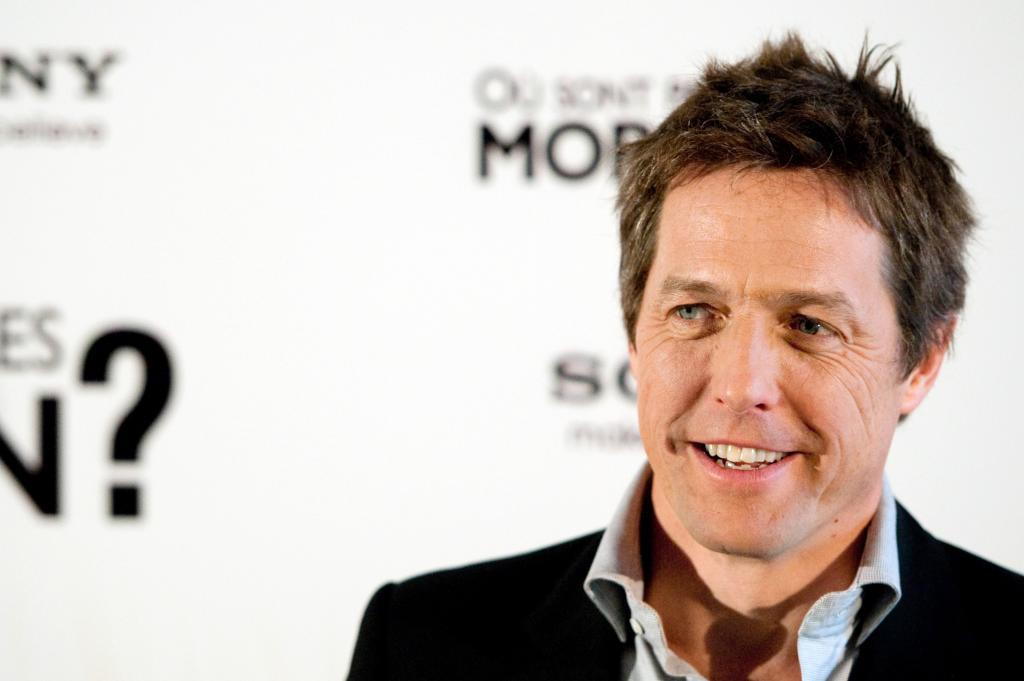Hugh Grant's story is not strictly an apocatastasis, as Saint Paul would say, but it is quite similar. It's not just that he has been resurrected, although there is something of that in his impeccable shape at 64, but that with him, as if by divine art, each and every one of his movies that composed that adorable, strange, and slightly sexist genre called romantic comedy have also been resurrected. The apocatastasis (don't make that face) tells us that there will come a time when all free creatures, good and bad, will share the grace of salvation. And indeed, platforms have made Love Actually, for example, what it probably never was: a movie so shamelessly and exaggeratedly mushy that there is no choice but to reclaim it. Even if it hurts. Pure apocatastasis. And there, in the middle, Hugh Grant. Always him. "Why don't I do more romantic comedies?" he asks after being questioned. "The answer is simple: I got older and romantic comedies went out of style. I remember I did a failed romantic comedy and saw clearly that it was over. I think it was good for me and for everyone. I am very proud of some of those movies, but I think it was time to end. Then, little by little, people started offering me strange things and I enjoyed them...," he says.
And nothing as divinely strange as Heretic, by directors Scott Beck and Bryan Woods, which will be released on January 3rd. In it, he plays a kind of theologian (hence the religious reference at the beginning) unbelieving to the most visceral atheism. His whole endeavor will be to demonstrate, and do so in the tortured flesh of two innocent souls (also Mormons), that what we call religion (whatever it may be) is nothing more than an elaborate system of control. All revealed religions, Mr. Reed played by Grant tells us, share myths and lies to the point of being nothing more than a copy of a copy of a great deception.
The one speaking, let's not forget, not long ago got involved in politics in a more than just protocolary way. In the 2019 elections, he unsuccessfully campaigned against Boris Johnson becoming prime minister. "In reality, I am more clear about what I am against than what I am for," he recalls of his foray into public affairs. Pause. And continues: "I am passionately anti-social media. I don't believe in screens, streaming, mobile phones, or the internet. I am convinced that all of that has ended or is ending the human experience."
And having said that, he clarifies: "In any case, I like to distinguish between the political Hugh and the actor Hugh." The comment is more of a warning. He is here to talk about his book.
He mentions, going back to the beginning, that he no longer receives romantic scripts. "I am no longer of romantic interest," he says. And smiles. He also mentions that, despite appearances, the success of those movies that are now making a comeback was anything but a product of chance or a simple sign of the times. "It took the talent of people like Marc Lawrence or Richard Curtis. And not only that. Recently, I watched Love Actually again with my wife, who is Swedish and therefore quite dark, and she saw it clearly. In reality, it is a movie about pain. She is right. All the humor in that movie is a way of dealing with pain, the pain of unrequited love, the pain of grief, the pain of having a brother who is in an institution... Its long life is because they are not silly at all. They are quite profound," he states, and he states it so clearly that, for a moment... apocatastasis.
Hugh Grant is back, and believe it or not, his name is being mentioned for the Oscars. Resurrection and apocatastasis, both things.
